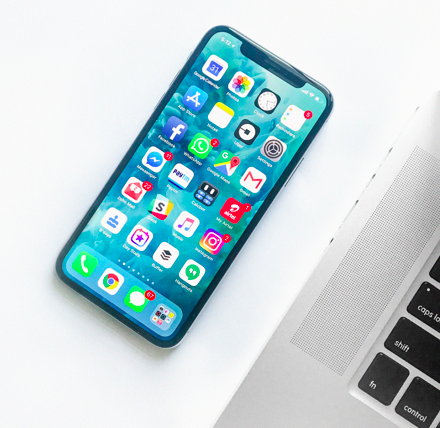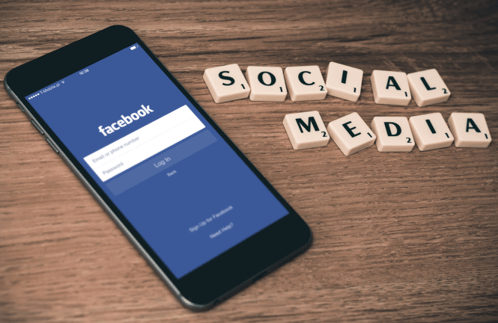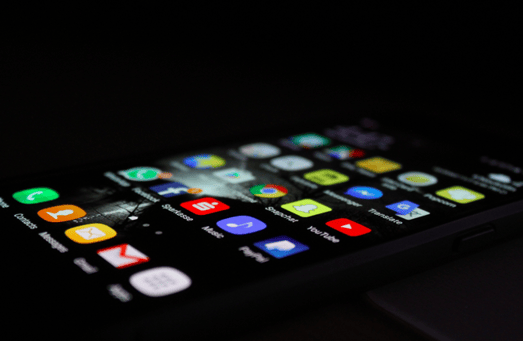Use Social Media to Maximise Engagement with New Audiences
![]()
You don’t need me to tell you that we live in the age of social media.
It is in everything we do, and is a part of our lives and work in ways like never before.
Of course, with this development of exposure and utilisation of social media comes concerns about overuse and our subsequent well-being.
This is an obvious and unavoidable consideration right now, and one that we as health care professionals, psychologists, therapists and mental health workers need to be aware of.
![]()
However, there are also aspects and functionalities of social media that can be of great benefit to us that work in these fields.
Social media can give us access to a new client group.
Social media can help us engage with our client base like never before.
Social media can be used as a positive tool to express and communicate valuable ideas and opinions in the field of psychology, therapy and mental health.
This all, of course, is reliant on our ability to use it ethically and effectively.
So, how exactly do we do this?
How do mental health professionals and those in caring roles understand and utilise social media for their work?
Well, we are going to go in depth about exactly this!
BRINGING YOUR PROFESSION INTO THE CURRENT AGE:
One of the greatest powers of social media is that it allows you to engage with a massive audience very simply.
Used appropriately, this can mean great things for those working in caring professions to reach out to new audiences with valuable content
There is a need for more professional expertise, knowledge and experience in mental health, therapy and psychology to be on a social media platform.

Think not about how social media has changed the world and changed your profession, think about how your profession can change social media
Be a positive voice on the biggest platforms on earth.
These platforms need more empirical insight and less ‘flex Fridays’ and ego-driven posts that scream for attention
I feel that being a positive presence on social media is our ethical duty.
In addition, we cannot sit back and simply watch as new generations congregate on social media.
We need to meet this generation where they are instead of waiting for them to come to us.
I understand the anxiety and caution that so many in this profession have towards social media. But now is the time to change our thinking process, see social media for the opportunities it holds and utilise the platform to spread a positive message.
Again, all of this might sound great. However, how do we actually achieve this?
It’s all well and good to simply start a social media account to discuss our work, but what should we actually be saying?
WHAT TO DO ON SOCIAL MEDIA:
After starting a social media account, on any platform, you need to be considering what to post.
For example, your LinkedIn audience might be very different from your Instagram audience, and as a result, they might gain value from different types of content.
Thinking about your different audiences is a good habit to get into.
You need to start engaging a little with why each audience member accesses your material on your different platforms.
For example, I know that on LinkedIn I have a more professional following. As a result, I like to post articles, opinions and content that has more of an academic feel.

I know that my Instagram audience like attractive images that give quick short and snappy messages that they can take away.
I, therefore, create engaging images with a quote attached. People scroll through Instagram pretty quickly, so I know that if I create long descriptions or quotes on my images that I won’t get as much interaction or attention.
Instagram is also a good opportunity for me to get more of my personality across to my audience. as an individual who works in a mental health and therapeutic field.

In the Instagram stories section, I try to engage my audience by getting them to ask me questions.
I often answer in video format to get my views up and my personality across.
Instagram really is a brilliant way to utilise your personality to engage and grow your audience.
With Twitter, I like using it to share brief thoughts and opinions. I also share articles here too and have found that to be very engaging.
Whenever I 'tweet' about a debatable topic, or ask a question that my audience can interact with, I see huge growth.
I would say that in psychology, mental health or counselling, twitter can be a very powerful tool to discuss different topics with your audience.
It’s also a great opportunity to express your own opinions on different topics.
ENGAGEMENT AND PRESENCE
One of the main purposes of having a social media presence in psychology and/or mental health is to grow your audience.
A valuable tool I have learned to help with this is the power of engagement.
Engaging with your audience, answering every question that is on your account, responding to every piece of feedback.
This goes a long way in establishing yourself as an approachable figure on social media, which makes a big impact.
Engagement is not only reserved for your audience. I have found huge value when I engage with other individuals and organisations on their social media accounts.
I comment on pictures on Instagram, engage in Twitter debates and comment on posts on Facebook and LinkedIn.
I ensure that I add value to the discussion and bring something of worth to those that might read my comments.

By being a presence on other accounts, your ability to reach a bigger audience grows.
The bottom line with social media and working in psychology, therapy or mental health is that social media can be a platform for good and positivity in your line of work.
It can engage thousands of people to understand and become involved with what you do.
As I said earlier, social media is full of content that is not really valuable to us. Perhaps we can start to change that by utilising social media more and making it a platform of real value.
For more information on Coviu, or to book a demo, click here.
 About the Author: “Fraser Smith is a counselling psychology doctoral trainee in Glasgow Scotland. Also the creator of GetPsyched, an online psychology platform that creates YouTube videos, blog content and social media content in the field of psychology. Fraser works as a psychological counsellor for a number of organisations and also works as a seminar tutor for undergraduate psychology students in Glasgow. Fraser has a passion for mental health, primarily men’s mental health, psychology, therapy and networking with others in the field.” Check out his website at http://www.getpsyched.org.uk/
About the Author: “Fraser Smith is a counselling psychology doctoral trainee in Glasgow Scotland. Also the creator of GetPsyched, an online psychology platform that creates YouTube videos, blog content and social media content in the field of psychology. Fraser works as a psychological counsellor for a number of organisations and also works as a seminar tutor for undergraduate psychology students in Glasgow. Fraser has a passion for mental health, primarily men’s mental health, psychology, therapy and networking with others in the field.” Check out his website at http://www.getpsyched.org.uk/




